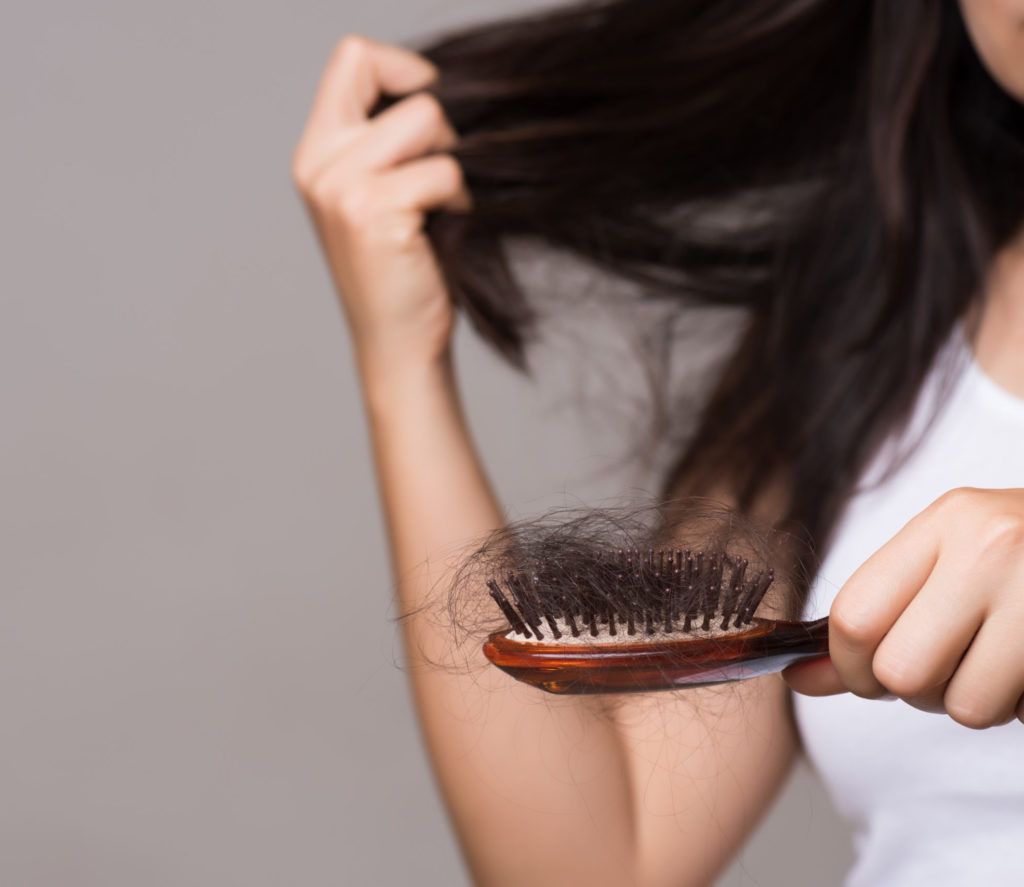Get your ticket to DUTCH Fest 2026! Join us March 12-14 in Dallas, TX for cutting-edge hormone education and hands-on learning. Learn more and register today.*
*DUTCH Fest is exclusive to registered DUTCH Providers. Only registered DUTCH Providers can attend.
Stress, Hair Loss, and the Cortisol Connection
Clinical Consulting Team
Stress, Hair Loss, and the Cortisol Connection
by Clinical Consulting Team
Hair loss can be caused by an imbalance in hormone levels. Cortisol is one of the hormones often identified with hair loss. Understanding how hormones and hair loss are connected and how to regulate the effects can help lead to healthier hair.
What is Cortisol?
Cortisol is a steroid hormone, one of the glucocorticoids made in the cortex of the adrenal glands which is released into the blood and transported throughout the body. Most cells contains receptors for cortisol which can have many different actions depending on which sort of cells it acts upon. These effects include controlling the body’s blood sugar levels and thus regulating metabolism, acting as an anti-inflammatory, influencing memory formation, controlling salt and water balance, regulating blood pressure, and helping fetal development during pregnancy. All of these functions make cortisol a crucial hormone to protect overall health and wellbeing.
How Hormones and Hair Loss are Connected Through Stress
Extended stress leads to longer periods of high cortisol levels. While the adrenal glands are busy making extra cortisol, they make less of the hormones which support healthy hair growth. Sustained high cortisol levels can also lead to other health problems, including a decrease in cell regeneration, impaired mental function, decreased metabolism, and a weakened immune system.
Cortisol is known to affect the function and cyclic regulation of the hair follicle . During periods of stress, cortisol dysregulation can disrupt cell signaling, and oxidative stress can disrupt the normal transitions of the hair growth cycle. In-vitro studies have demonstrated that proinflammatory cytokines, including tumor necrosis factor-alpha (TNFα), interleukin (IL)-1α, and IL-1β, cause the formation of vacuoles within hair matrix cells as well as abnormal keratinization of the inner root sheath and follicle bulb and inner root sheath. These cytokines have also been shown to disrupt follicular melanocytes and promote the formation of melanin granules within the dermal papilla . They can disturb the hair cycle, which may cause premature arrest of hair cycling . Specifically, these molecules can prevent the hair growth cycle from moving from the telogen phase to the anagen growth phase .
There are three types of hair loss which can all be associated with high stress levels:
- Telogen effluvium (TEL-o-jun uh-FLOO-vee-um), where a significant stress pushes large numbers of hair follicles into a resting phase. Within a few months, affected hairs might fall out suddenly when simply combing or washing hair
- Trichotillomania (trik-o-til-o-MAY-nee-uh), an irresistible urge to pull hair out from the scalp, eyebrows, or other areas of the body. Hair pulling can be a way of dealing with negative or uncomfortable feelings, such as stress, tension, loneliness, boredom, or frustration
- Alopecia areata (al-o-PEE-she-uh ar-e-A-tuh) is when the body's immune system attacks the hair follicles, causing hair loss. This is thought to be caused by a variety of factors, possibly including severe stress
Want more information on stress, hair loss, and the cortisol connection, as well as suggested treatment options? Watch our recent DUTCH Webinar with Dr. Carrie Jones, Medical Director of Precision Analytical: Stress Induced Hair Loss: Make it Stop!

Testing for Stress-Related Hair Loss
Dried Urine Cortisol testing is a non-invasive collection method. It is used as a diagnostic tool to identify chronic stress disorders and may also be useful in understanding stress-related hair loss. This testing is part of the DUTCH Complete™ panel offerings.
The DUTCH Plus® uses four dried urine samples and five saliva samples. These samples are collected over the course of one day, from waking to bed time, and includes three Cortisol Metabolites and the diurnal pattern of Free Cortisol and Cortisone, including the Cortisol Awakening Response (CAR) with a saliva measurement.
Become a DUTCH Provider to receive hormone education and resources, clinical support, and more.
Content credit: Some information in this post was shared from the May 2020 article appearing in NDNR, Naturopathic Doctor News and Review.
TAGS
Hair Loss
Adrenal Androgens (DHEA)
Cortisol
Men's Health
Premenopausal Women
Postmenopausal Women